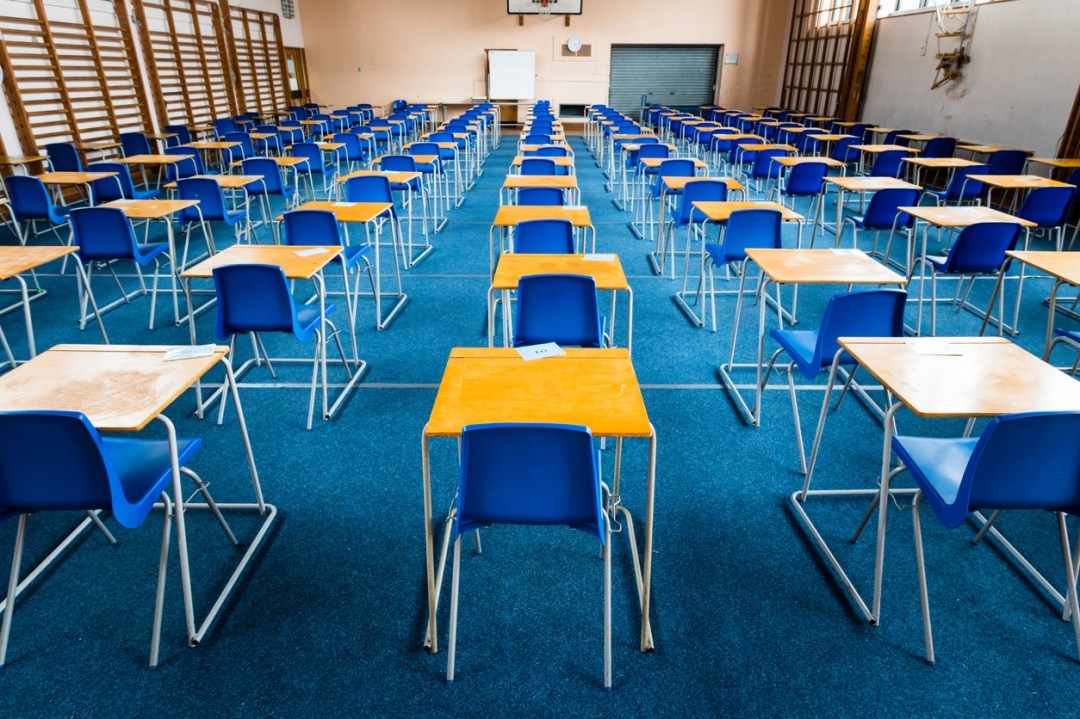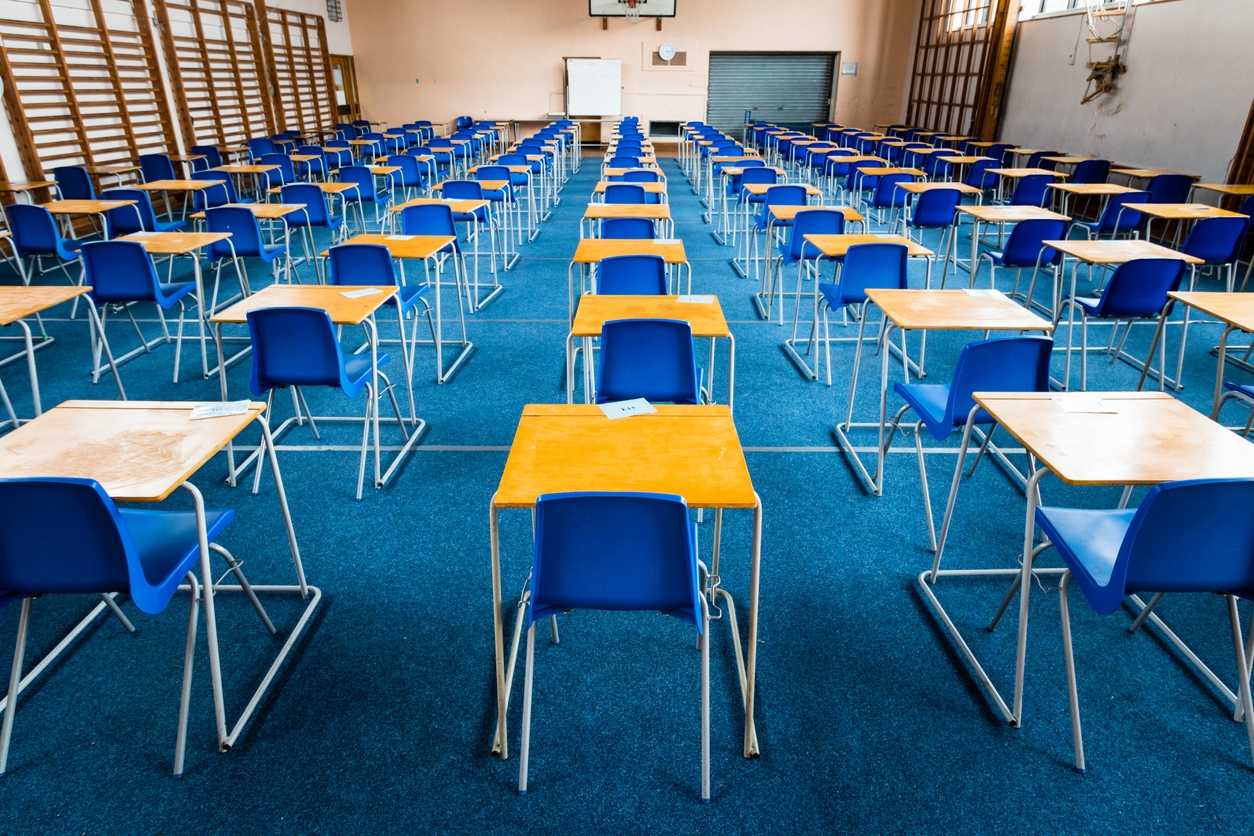When the Scottish government made the decision this summer to do a U-turn and award teachers’ predicted grades instead of exams, it was inevitable that England and Wales would follow. Now that Scotland has cancelled National Highers next summer, the question is: will GCSEs again follow suit?
With less than 84 per cent of secondary schools fully open at the moment, it is clear that schools are caught between a rock and a hard place. They are also inching towards a cliff edge. It is estimated that thousands of children and young people were not in school last week, and further disruption is inevitable.
Regional disparities will only widen the inconsistencies in the quality and quantity of provision between schools, and with only approximately 120 days of teaching left before GCSEs are due to start, the plan to go ahead with formal examinations looks increasingly untenable.
There seems to be two options being actively considered. Firstly, delaying the start of GCSE and A-levels by three weeks, which of course doesn’t go far enough to compensate for months of missed school. Secondly, exam boards could slim down the curriculum, either by offering fewer exam papers per subject, or more options in terms of questions.
There are a few issues though with diluting content in this way: for example, it could potentially disadvantage students who may struggle with the cognitive leap to A-level if they miss out on parts of the course. It would also potentially give the impression that 2021 exam grades weren’t ‘worth’ as much as previous years.
Ministers may be adamant that they don’t want to throw in the towel yet, but they can’t just sit on their hands either. School leaders, teachers and pupils need a robust contingency plan, and they need one communicated to them quickly if we are to avoid a repeat of the mutant algorithm fiasco this summer.
The plan should be simple: give schools clear guidance on how to run a number of scheduled assessments throughout the year, so that they can gather reliable evidence to be used in the (likely) event that they have to rely on teacher-predicted grades again.
Many private schools are already collecting extensive data on their pupils by increasing or broadening assessments, but this won’t be standardised across schools. Some pupils may only sit mock examinations in November in one paper; other pupils may sit mock examinations in February in all papers. Some schools may be dealing with large-scale pupil absences and so will focus on curriculum catch-up instead.
Transparent, explicit guidance is needed. For example, these internal assessments should be done under timed, exam conditions (to avoid the risk of cheating) and must examine at least half of the course (to ensure they are an accurate and representative reflection of a pupil’s ability).
There is the risk that teachers may over-predict grades, but this can easily be avoided with some carefully planned moderation. Just as coursework is moderated by exam boards selecting a random sample of candidates’ work, so too a portion of these internal assessments could be checked externally to ensure teachers are not marking too generously.
Providing clarity could also be a savvy political move: a way of showing strong leadership and a sense of forward planning, both of which are woefully lacking right now. It is somewhat ironic that days ago, Boris Johnson set out his ‘vision’ for a post-Covid Britain, promising that the pandemic would be a ‘catalyst’ for major progress, and yet in one of the areas in most need of change, there is absolutely no sense of urgency.
The government seems to be constantly on the back foot; MPs are only voting on whether to slim down the curriculum because a public petition reached over 100,000 signatures. They are now even facing pressure from within the Tory ranks, as MPs start to realise there might not be a method behind the madness.
The One Nation Group, which is made up of about 100 Conservative MPs are not only campaigning for GCSEs to be cancelled this year, but for them to be scrapped altogether. They argue that England is unusual in forcing students to take two sets of high-stakes exams within three years, and that the exams should instead be replaced by a baccalaureate, which would cover several years’ study and allow students more time to settle on the subjects they want to take.
Their most recent report also claimed that our exams system was partly responsible for high levels of stress and unhappiness amongst pupils, and that they were concerned by the impact of exams on mental health (in a report by the Children’s Society in August, England ranked 36th out of 45 countries in Europe and North America for wellbeing).
If anything is adversely affecting students’ wellbeing right now, it is not knowing what will happen next. Anxiety breeds off uncertainty, and whilst we cannot predict what will happen over the next couple of months, a firm decision made prematurely is better than not making any decisions at all (or not making one until we are, once again, forced to play catch-up with the Scots).
Flick Drummond, MP for Meon Valley and one of the co-authors of the One Nation Group report, says that the ‘Covid outbreak is a good opportunity to take another look at the education system and see what we could do differently, and to do something radical.’
Radical may be a step too far, but what about something rational, reasonable, and realistic, like moderated internal assessments?
The government may not want to sink the ship just yet, but it shouldn’t be afraid to rock the boat either; schools and pupils are sailing through stormy seas, and all they are asking for is a lifeline in the likely event that we will have to abandon GCSEs again.







Comments